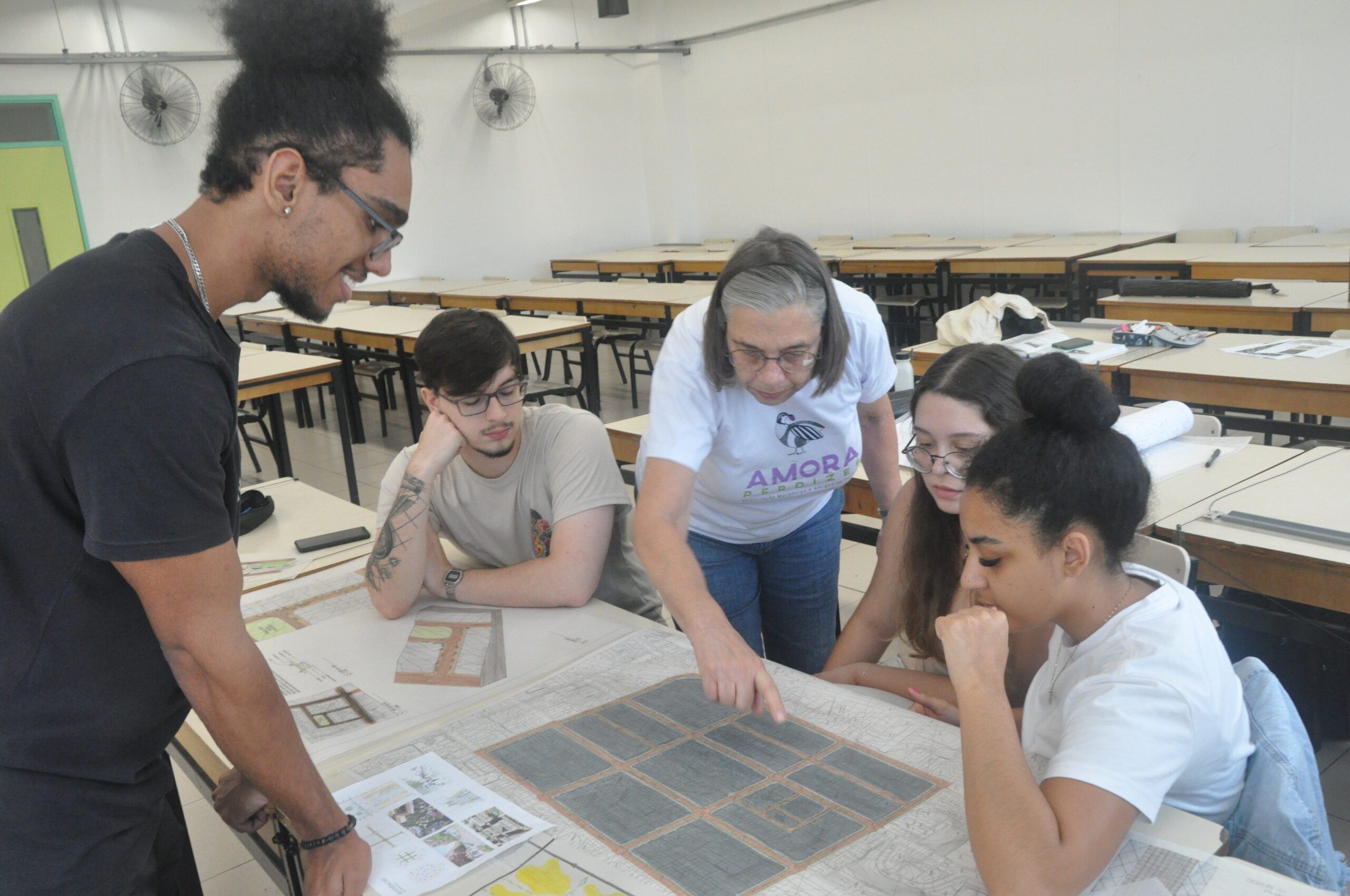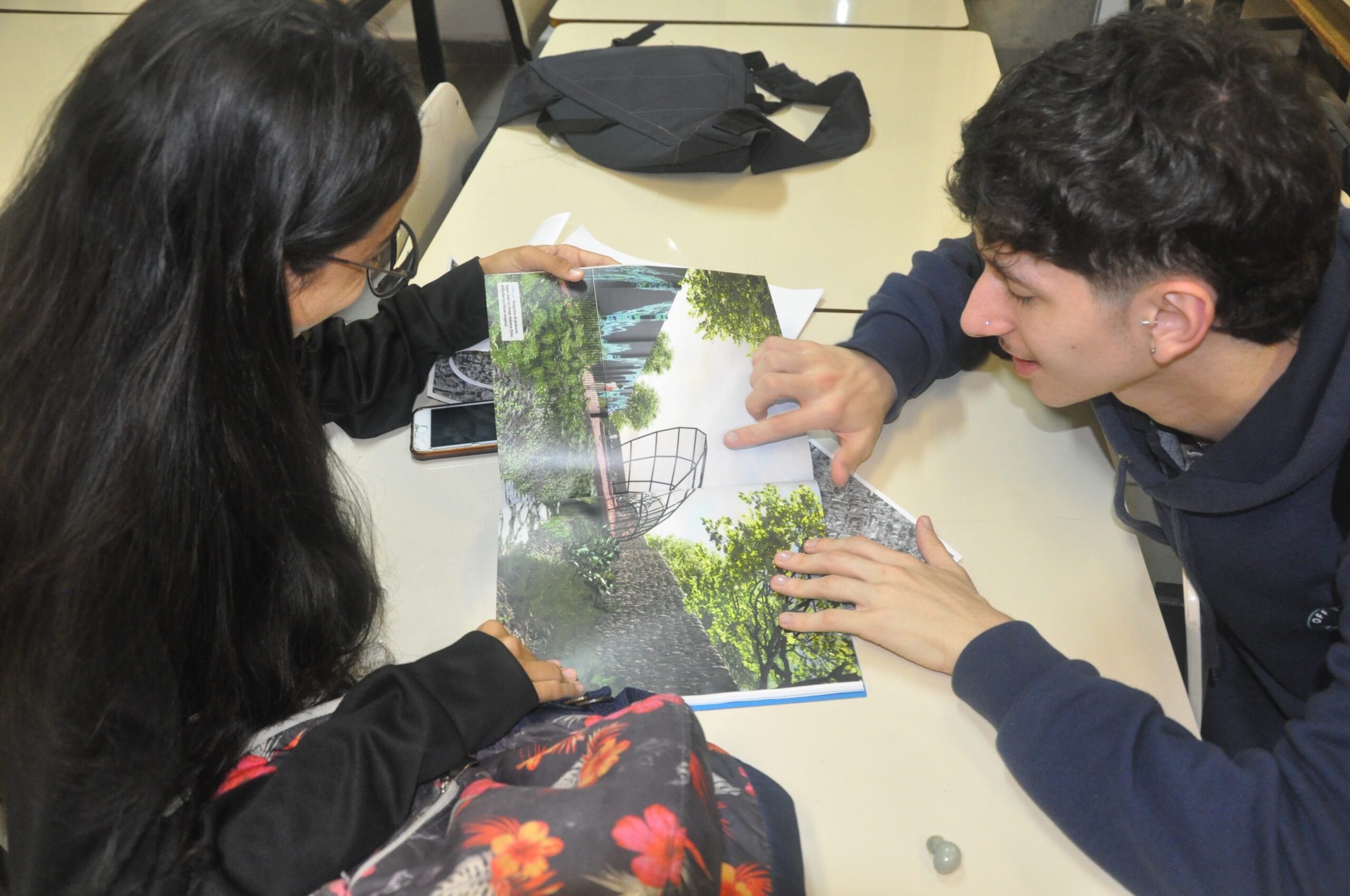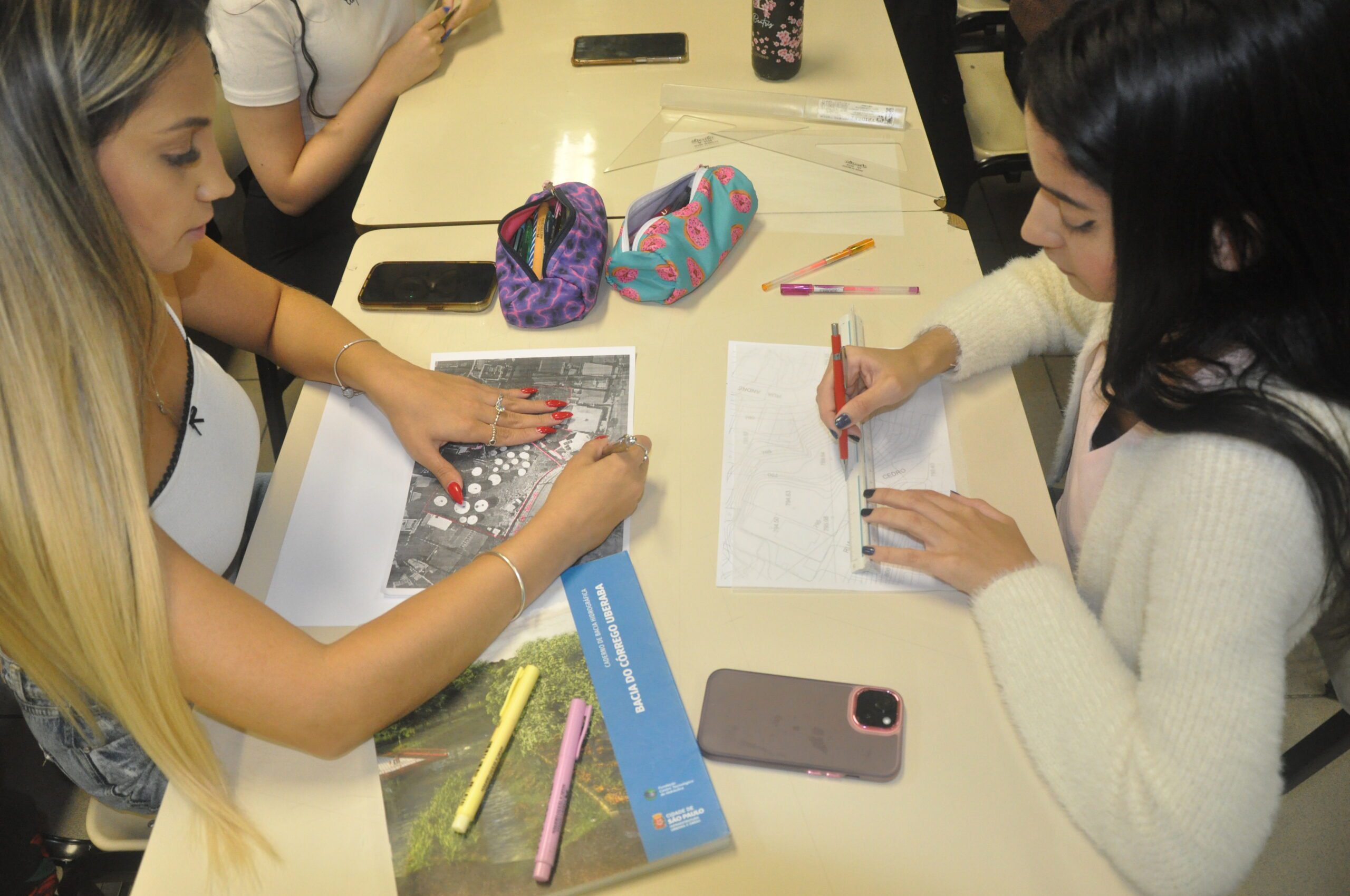Proponents: Architect Prof. Dr. Renata Priore Lima (UNIP); Architect Ms. Antonio Castelo Branco Teixeira Jr. (Amora Perdizes); Architect Prof. Dr. Beatriz de Almeida Pacheco (UNIP); Architect Ms. Thamires Zelinda dos Santos Souza (FAU Mackenzie).
This workshop will be a space for reflection and collective action, focusing on the relationship between the city and its waters. The initial discussion will feature recordings of previous walks through the two neighboring basins (Água Preta and Sumaré), raising questions about how to combine local solutions with integrated watershed planning. The discussion will address sustainable drainage projects and green-blue infrastructure, exploring everything from microdrainage techniques such as permeable pavements, rain gardens, bioretention ponds, and bioswales; to territorial-scale macrodrainage strategies such as linear parks, floodplain parks, and ecological corridors, which promote water retention and infiltration into the urban fabric.
Starting with technical walks through the basins of the Sumaré and Água Preta streams, which are areas marked by covered springs, large reservoir projects over squares and the degradation of protected green areas, the activity seeks to identify conflicts and opportunities to implement Nature-Based Solutions (NBS) and develop proposals, through models and sketches.
This workshop arises from the urgent need to rethink the role of architecture and urban design in the face of the water and climate crisis in São Paulo. The focus is on these two river basins (Sumaré and Água Preta), located in the West Zone of the city of São Paulo, which are home to channeled streams and unfinished gray infrastructure projects, in addition to witnessing the reduction of green areas due to the removal of vegetation cover to make way for new condominiums. Added to this are institutional projects of large swimming pools over tree-lined squares and new subway stations, which exacerbate flooding in the area and the formation of heat islands. Given this scenario, a practical laboratory for redesigning urban infrastructure is proposed. The initiative demonstrates how architecture can mediate the relationship between technology and territory, converting degraded spaces into multifunctional systems that integrate drainage, biodiversity, and public use.
Vacancies: 120
Free
Registration:
Registrations must be made by form available here.
Selection will be made in order of registration.
Registration will be open until October 5, 2025.




